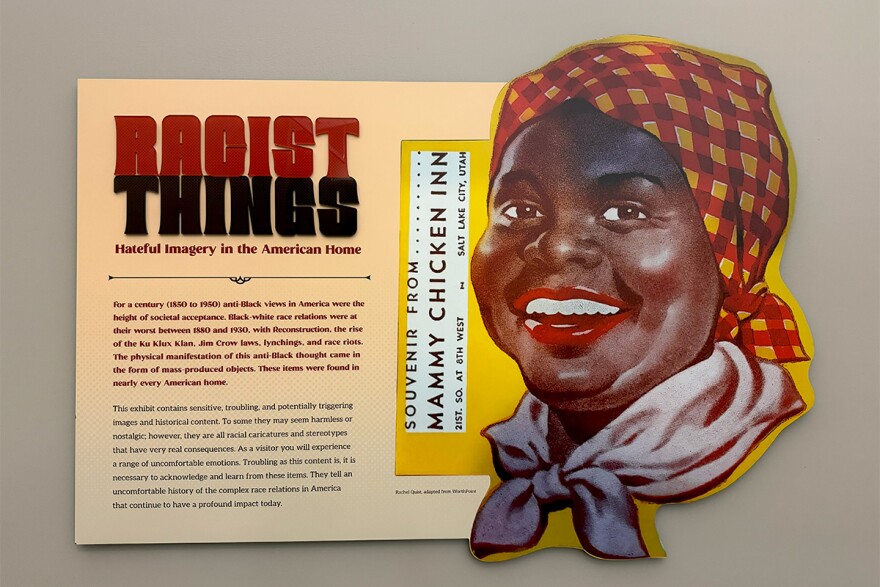A special exhibit at the African American Museum of Iowa confronts the harmful objects white Iowans kept in their possession that perpetuated racist stereotypes about Black people. “Racist Things: Hateful Imagery in the American Home” is on display at the museum in Cedar Rapids through mid-September.
Regardless if it was coffee or soap or seeds, every one of them had some type of caricatured, stereotypical depiction of a Black person to sell their product.Felicite Wolfe, curator and collections manager
“There's been a movement ... about the 1970s, 1980s, through the Black community to kind of take these items back as a way of taking their power back, to actually start collecting them themselves as a way to do that, to say, ‘Look where we've come,’” said Felicite Wolfe, curator and collections manager at the museum. “There are also many people who purchase them. They are pervasive in antique stores still to this day. So there's a lot of people, Black collectors, who have them in their homes. There are ones who buy them just to destroy them, to keep them out of everyday life.”
The museum had considered building a display on this topic for several years but waited until the community indicated they were ready to tackle the issue.
The objects are showed in their proper historic context, beginning with the origins of racial caricatures in minstrel shows, where exaggerated Black characters were used as entertainment. The actors would darken their face in a dramatic way and paint on large red lips.
Commercial products and advertisements further exploited racist imagery to create intrigue and sell goods. One display case shows a collection of racial advertisement cards, also known as trade cards.
“Regardless if it was coffee or soap or seeds, every one of them had some type of caricatured, stereotypical depiction of a Black person to sell their product,” Wolfe said. “They're using a Black body – exaggerated Black body – to sell their product.”

One of the most pervasive racial caricatures featured in the display is Aunt Jemima, the character created to sell pancake mix and syrup. Her persona is a "mammy figure," a mythical stereotype of a robust enslaved Black woman cheerfully working in the home.
“This very womanly and wise persona, who would have all kinds of anecdotes and special things to help you feel like, as a woman in the kitchen, you had some help — someone who understood you,” Wolfe said.
The collection has Aunt Jemima cookie jars, mugs, soap dispensers, sugar bowls, salt and pepper shakers, plush dolls and decorative figurines. In the 1960s, Iowa chapters of the NAACP boycotted Aunt Jemima, though the brand wasn’t changed until 2021.

Wolfe said this history is quite recent, and the exhibit is meant to help people understand the origins of these stereotypical images and the lasting damage racial caricatures have caused Black people.
“They were in our grandmother's kitchens. They were in our mother's kitchens,” Wolfe said. “I understand that you didn't think there was anything wrong with it ... but being presented with all of this information, to just be able to have the ability in yourself to say, ‘Huh, okay, I don't think I've realized that this is where this comes from, this is what this really means.’”







